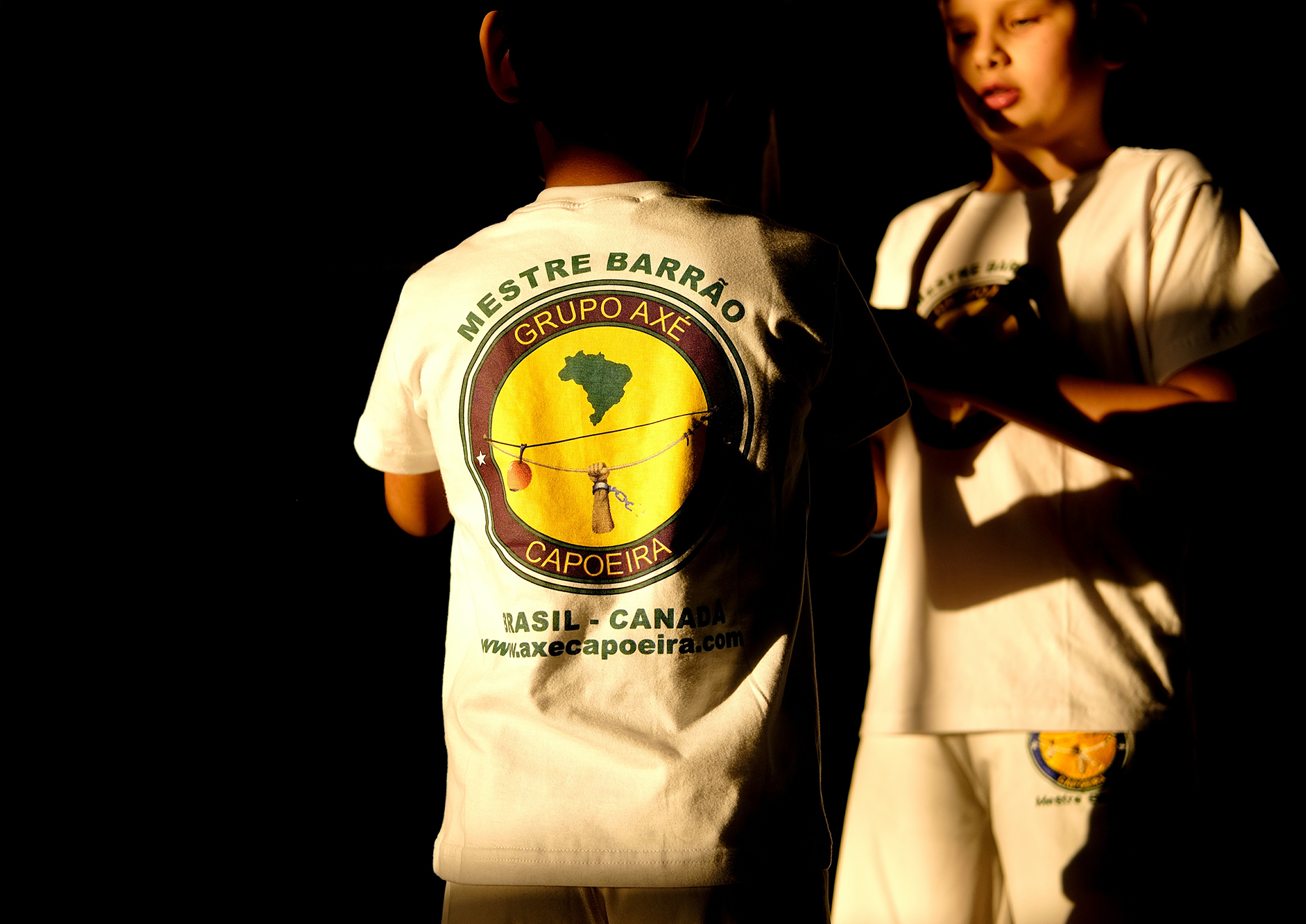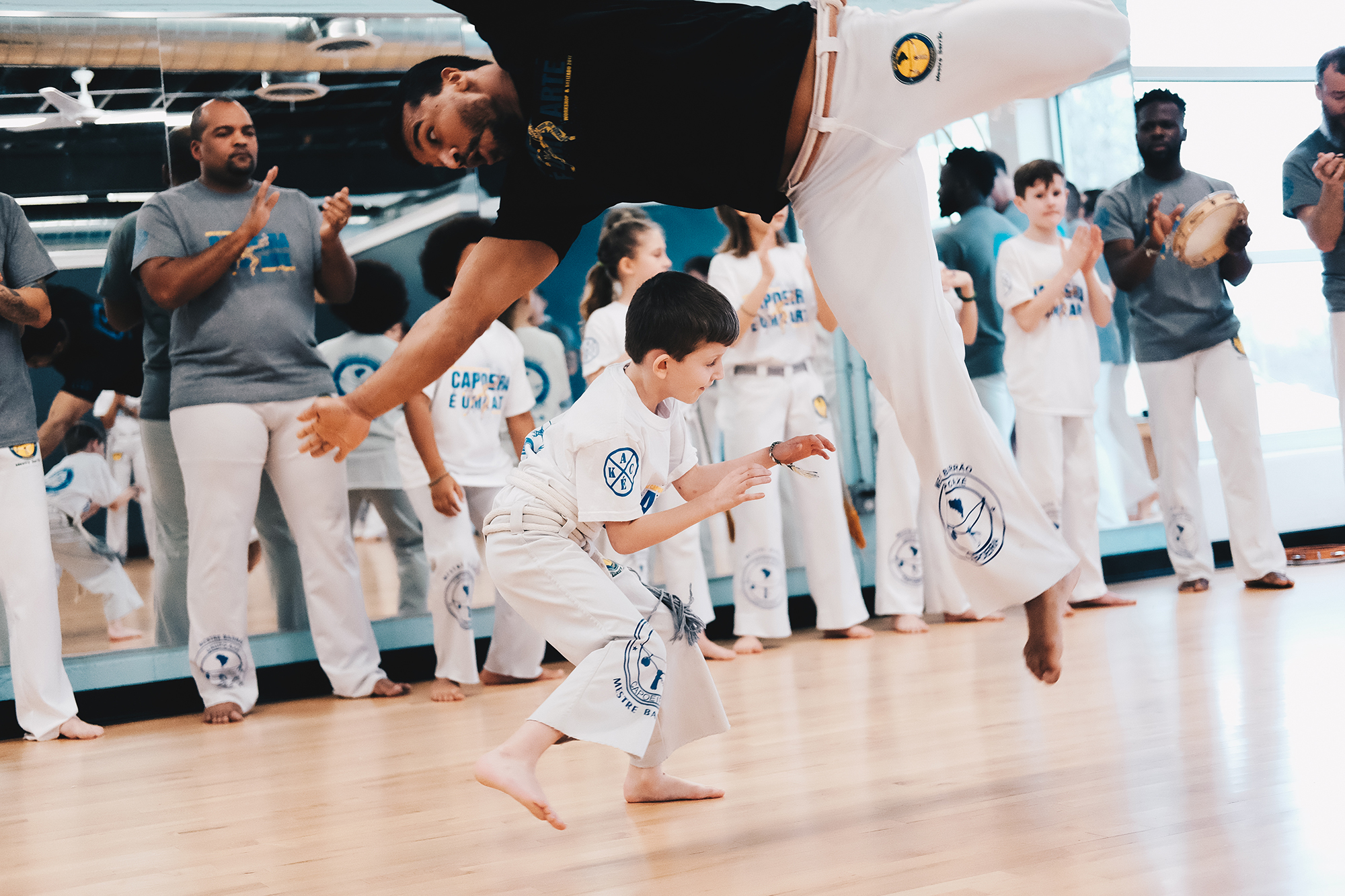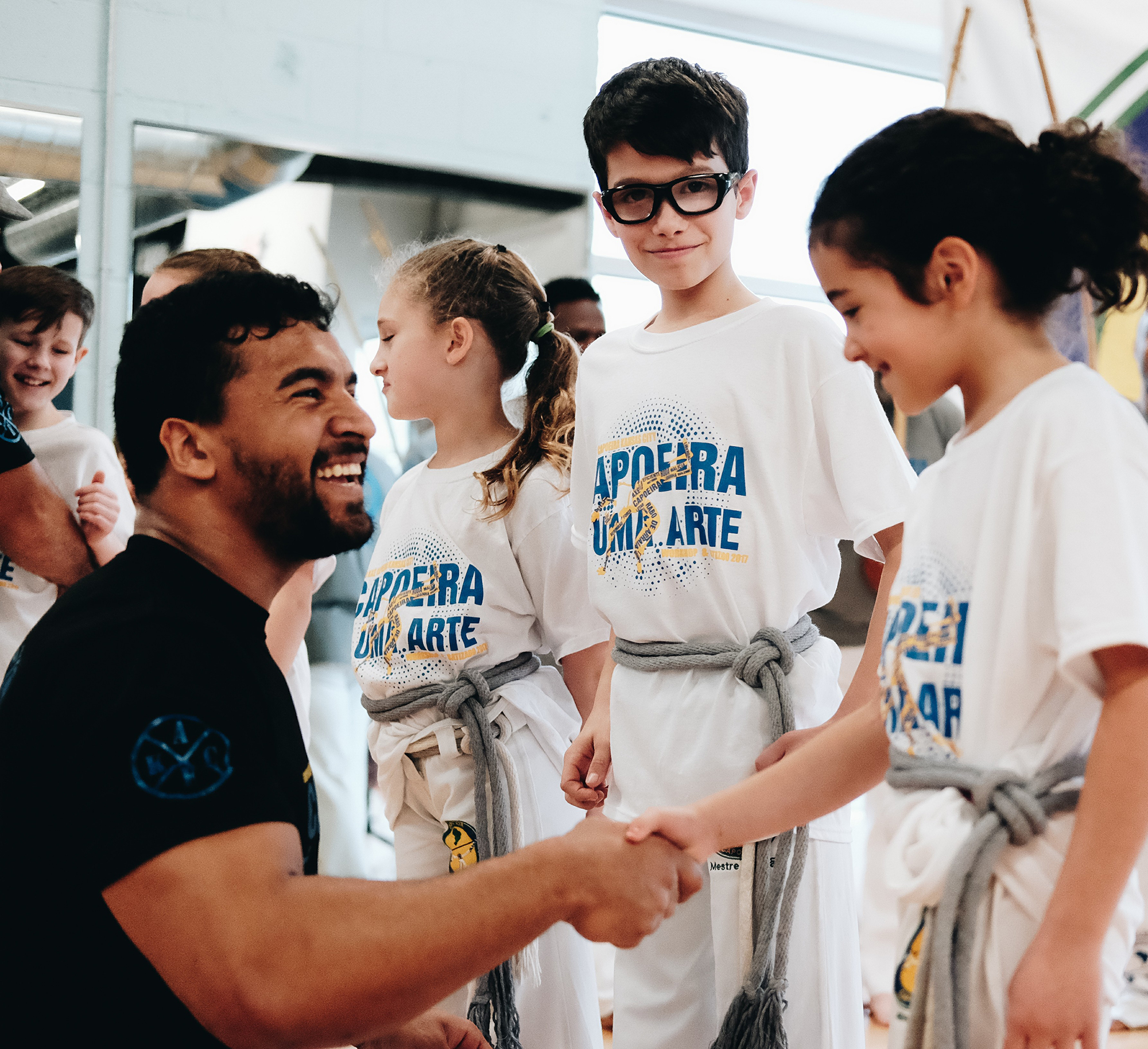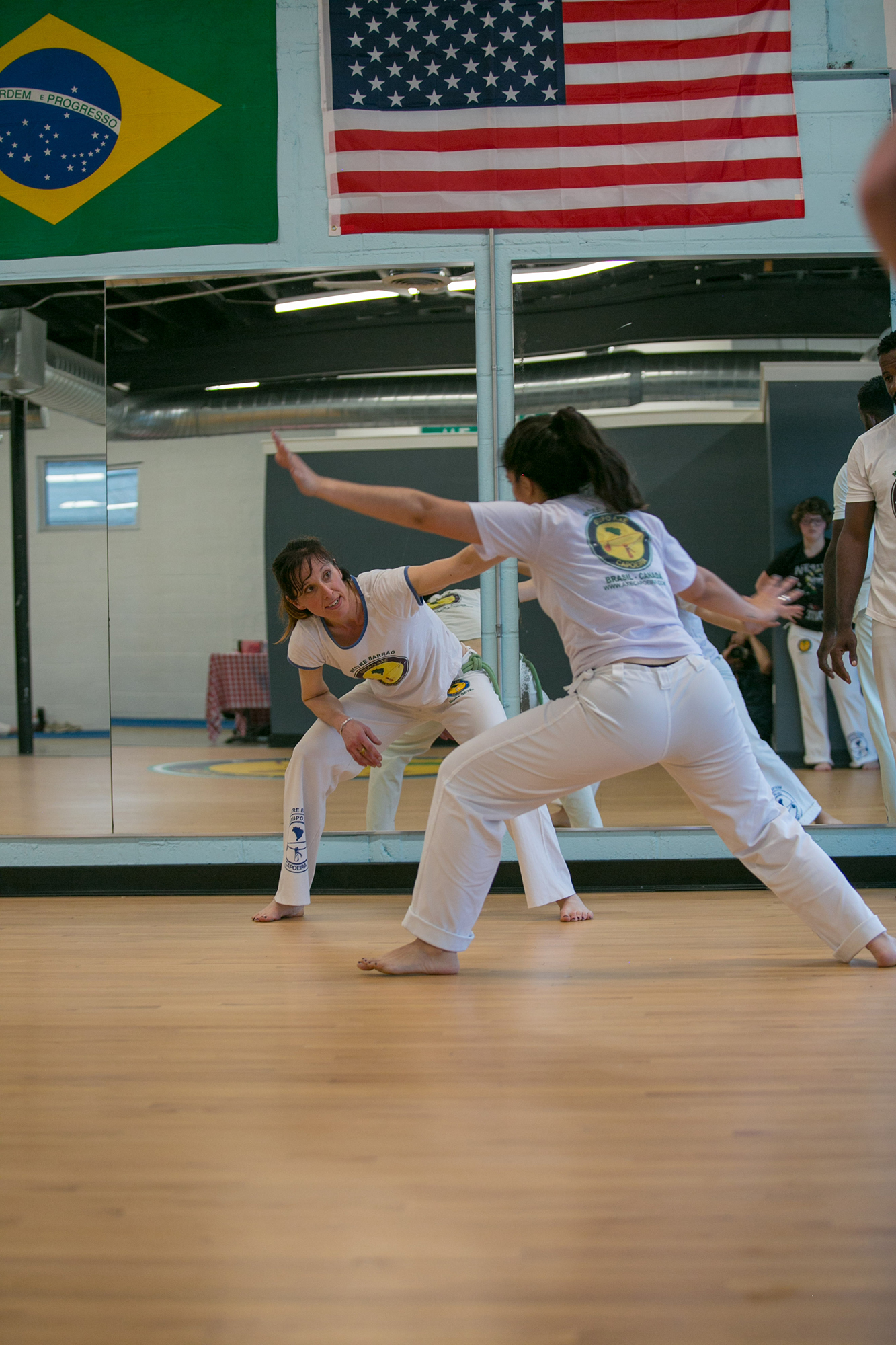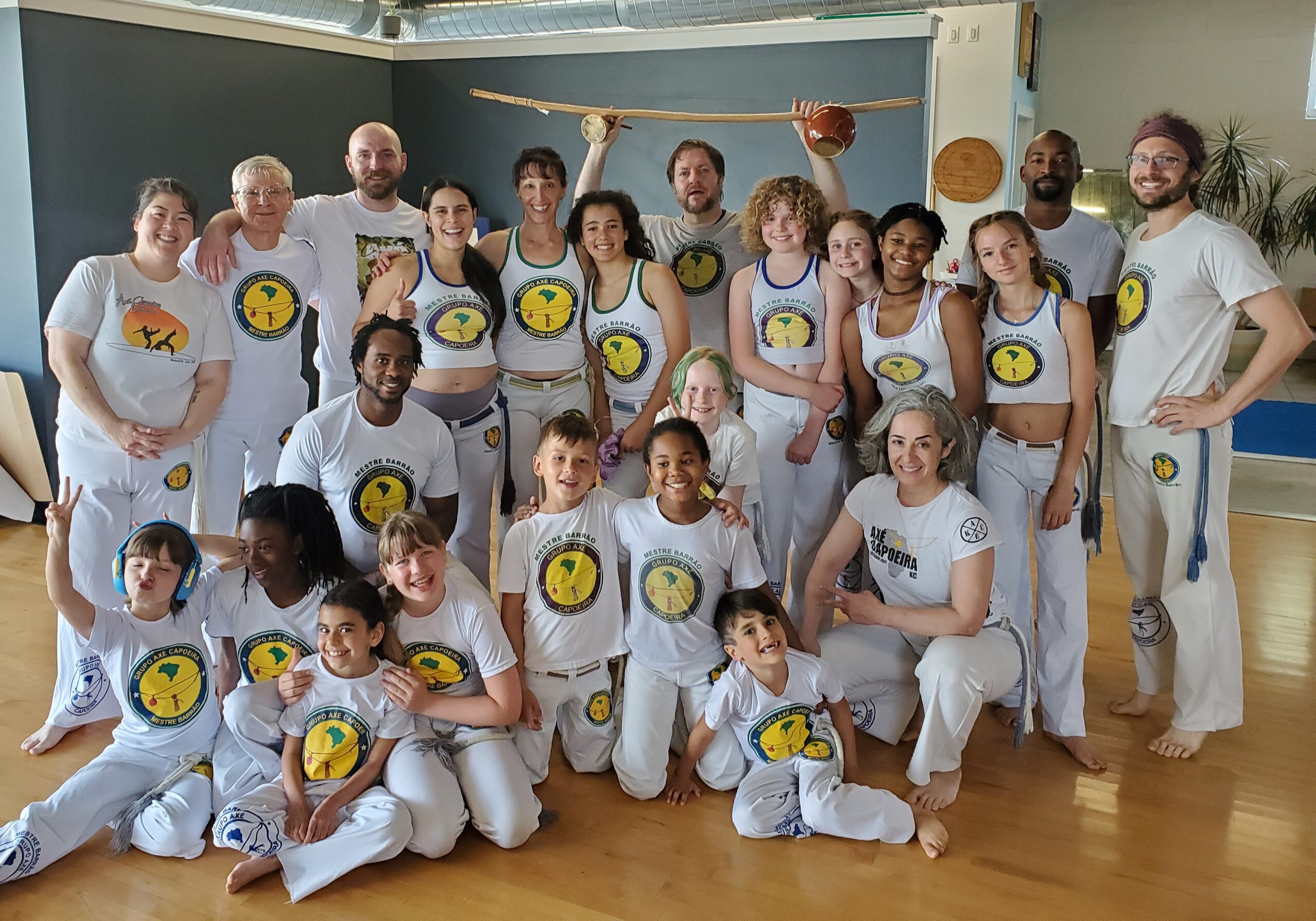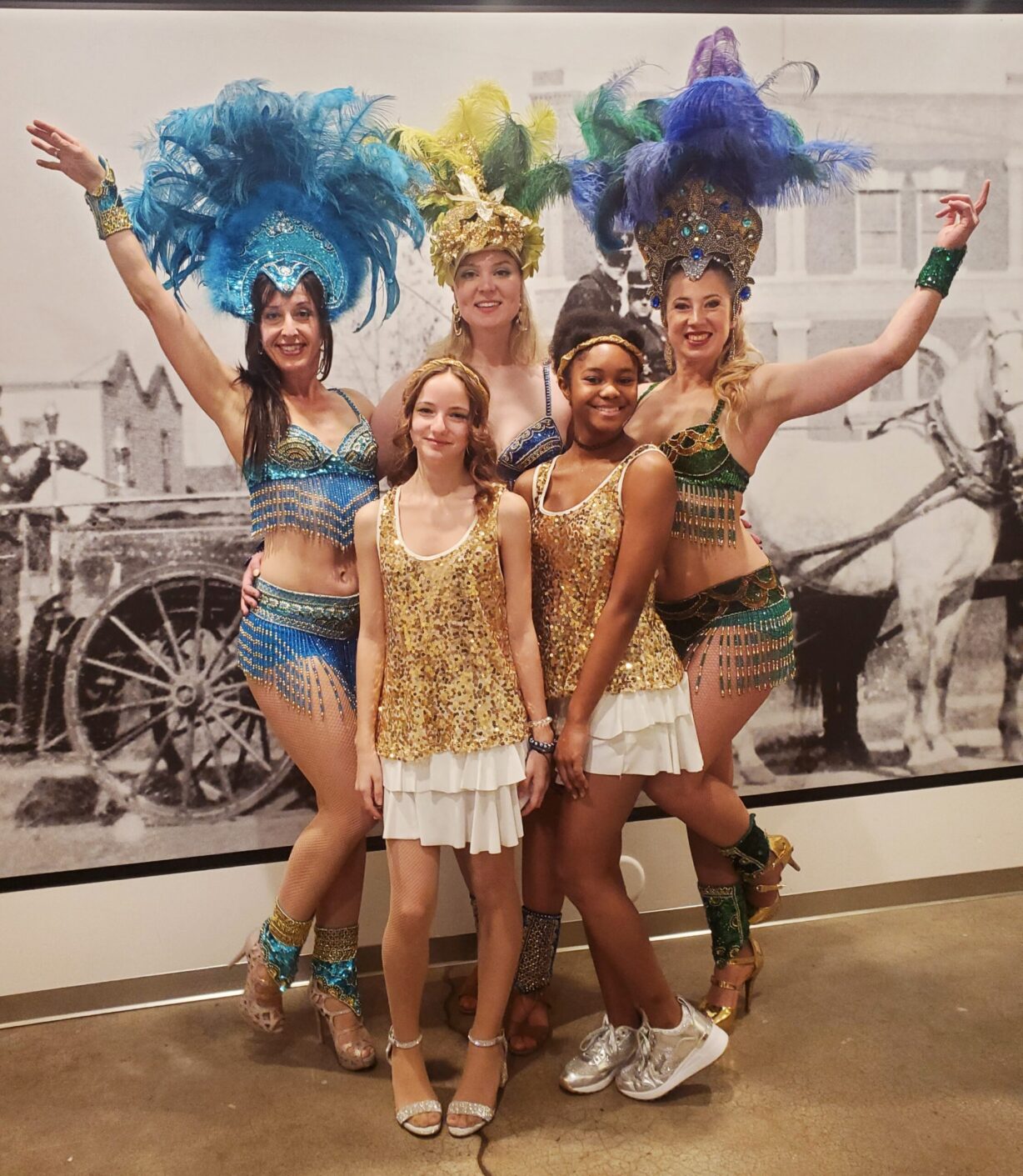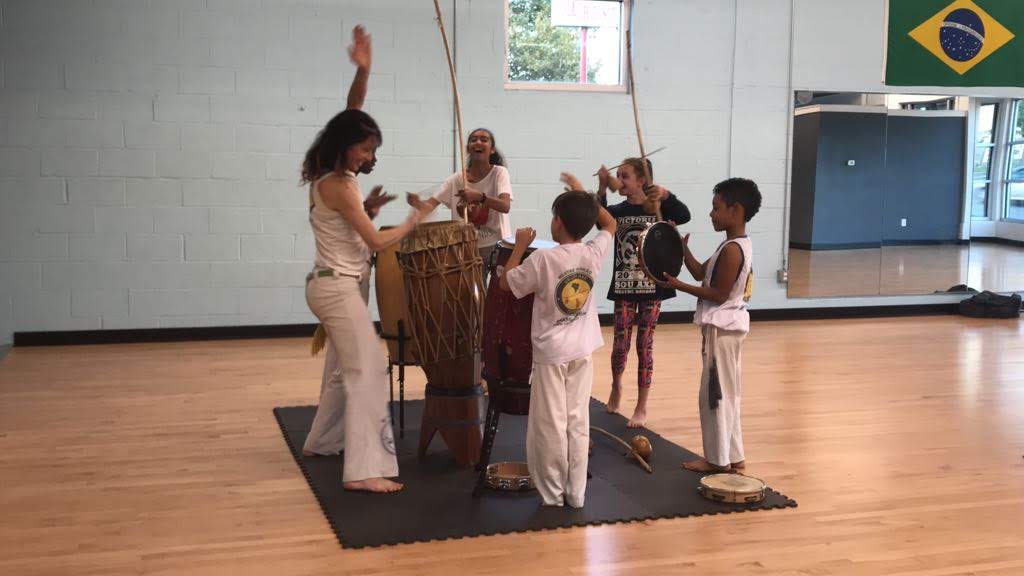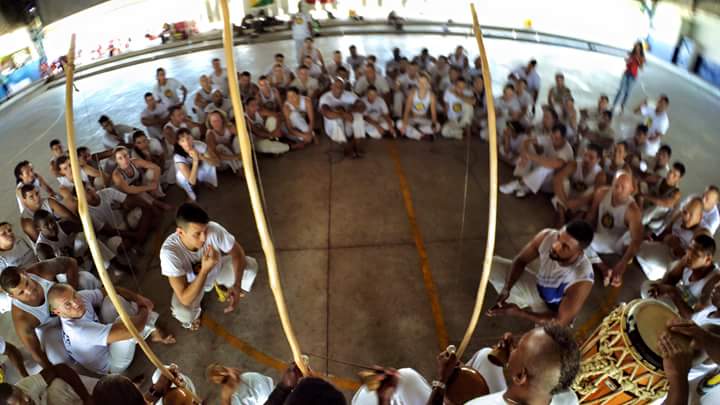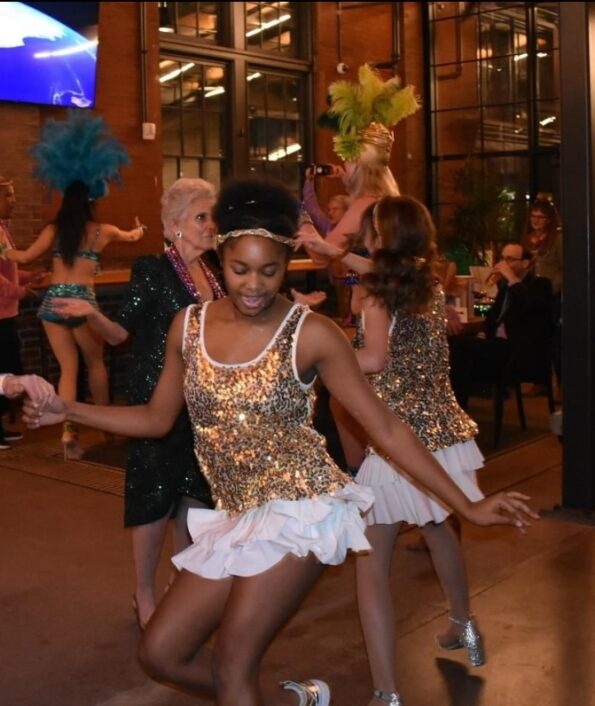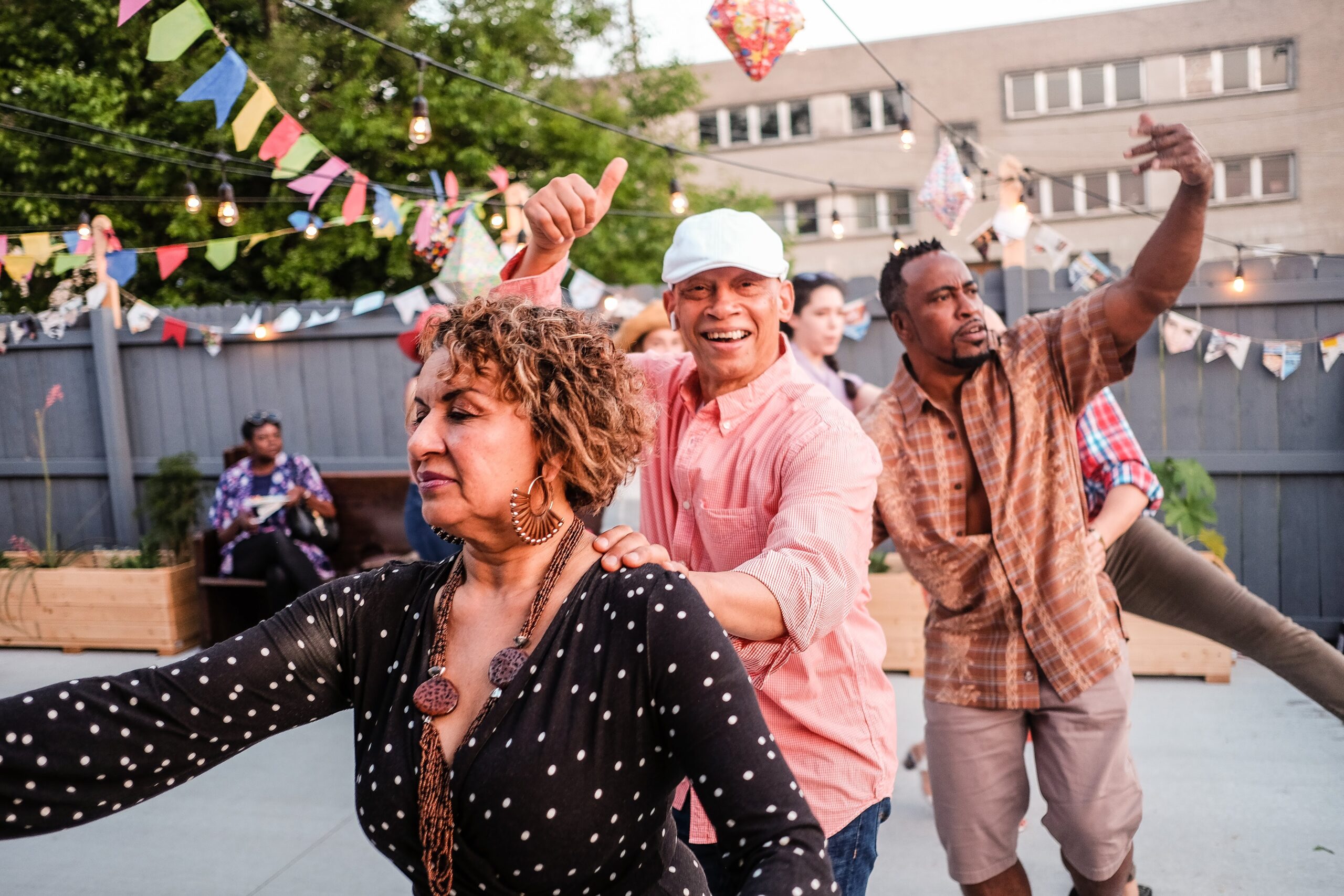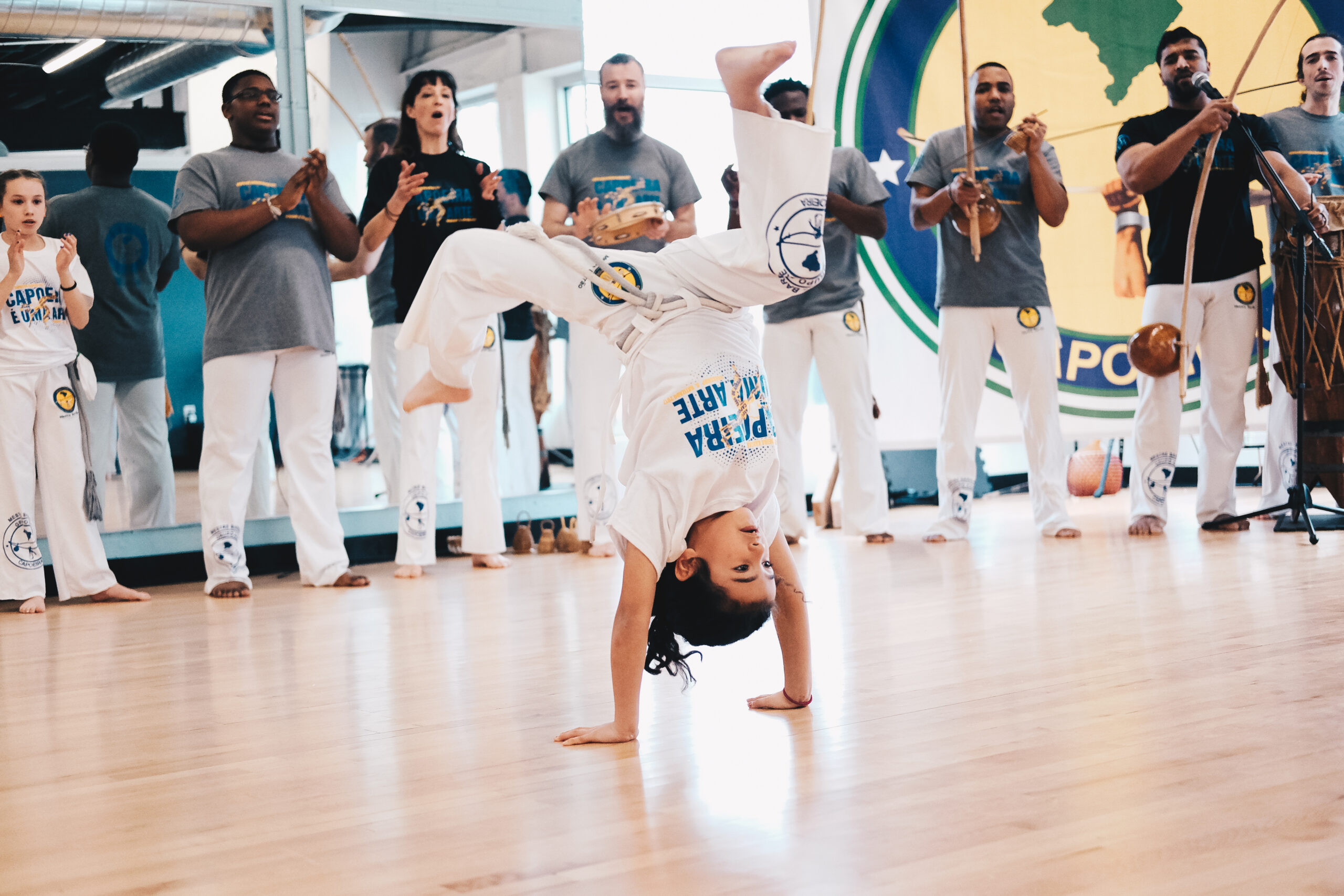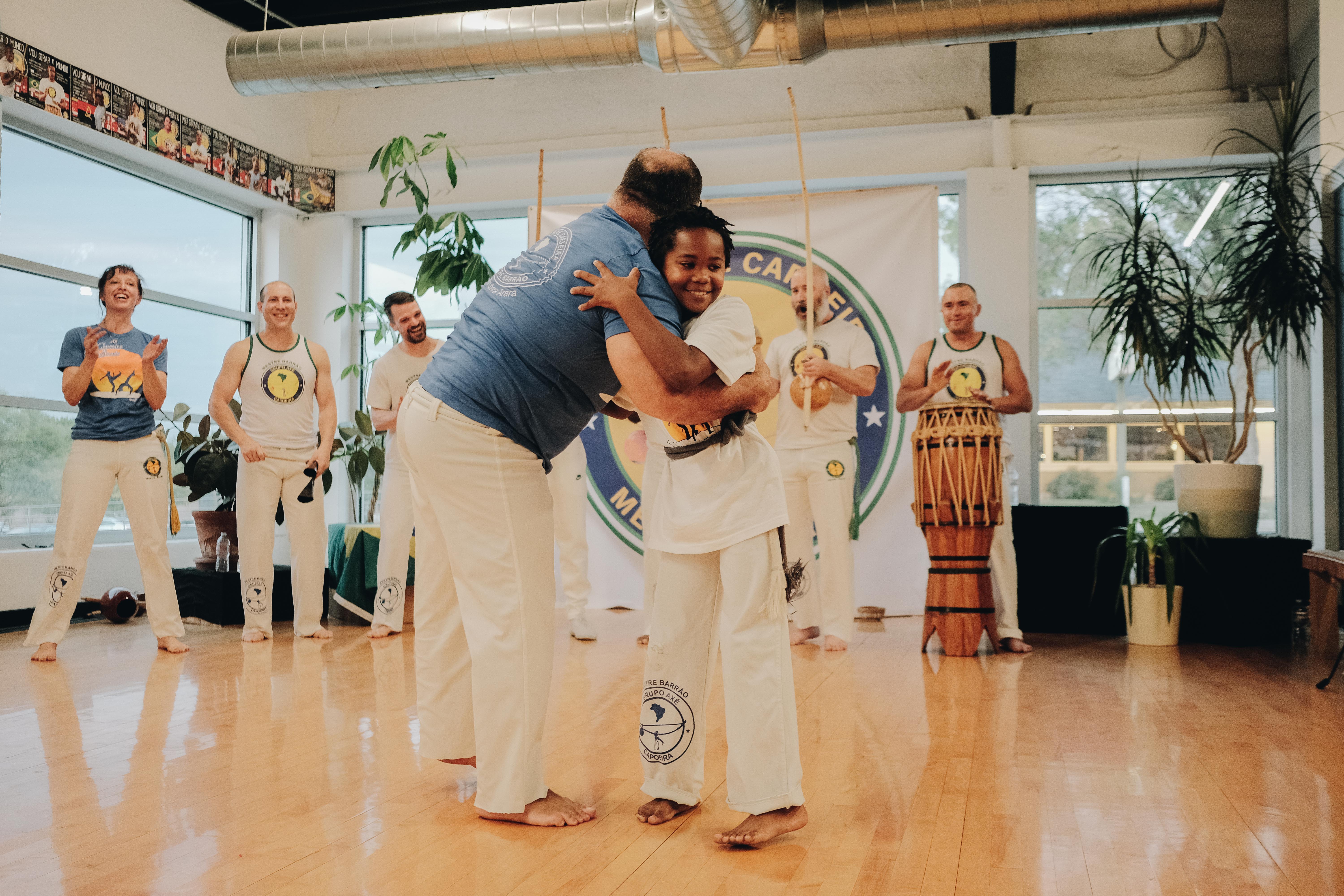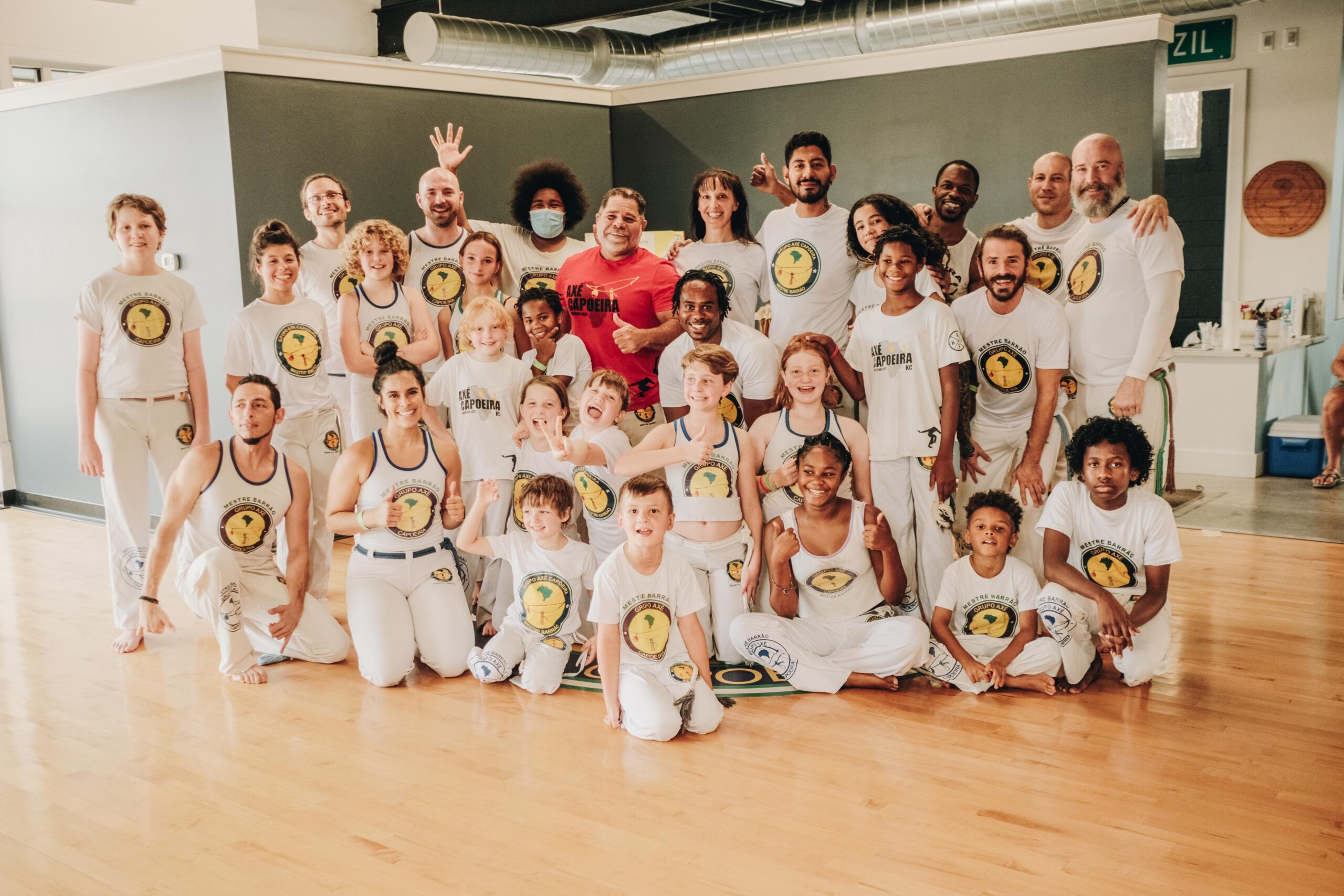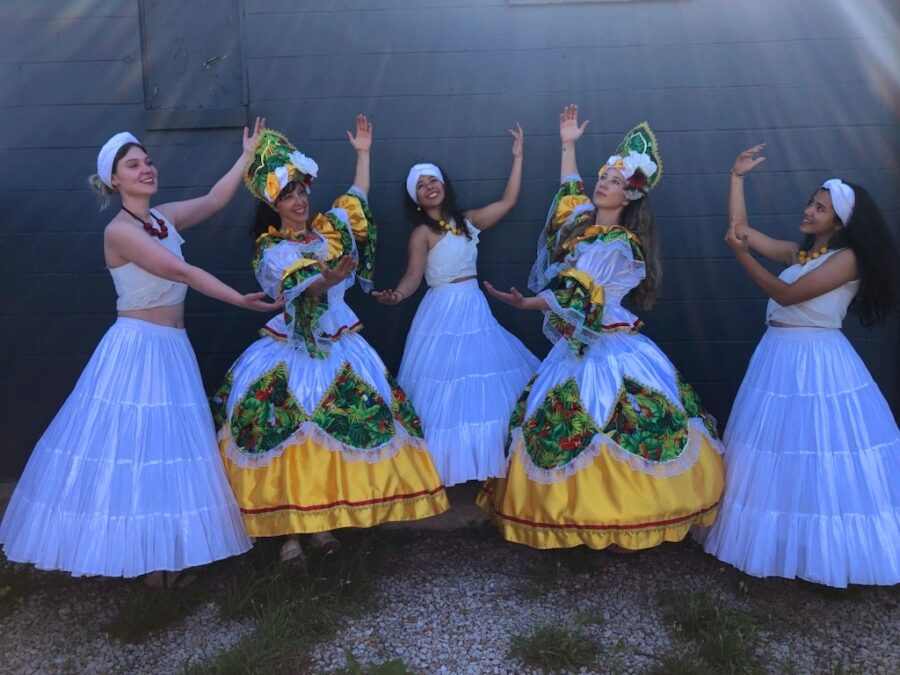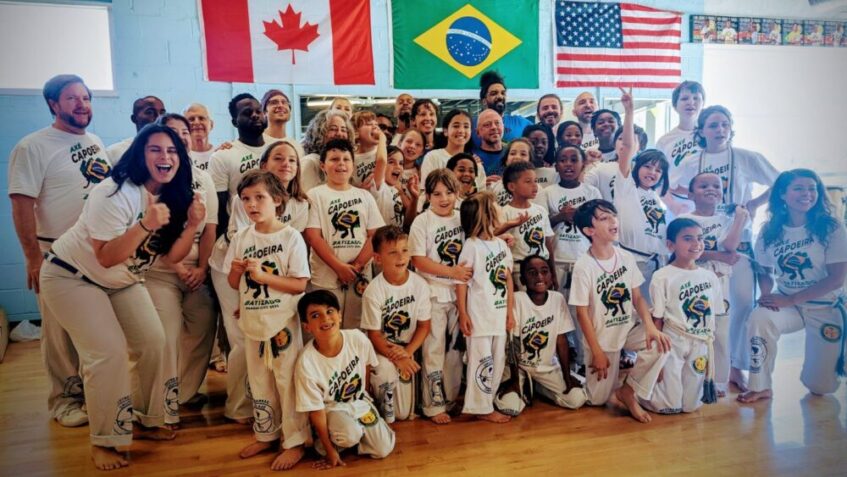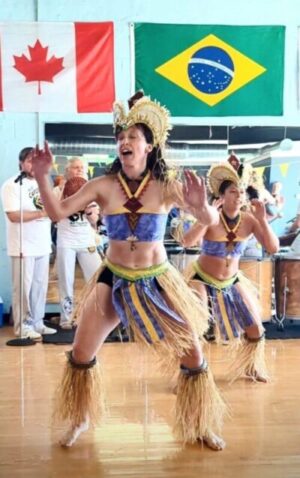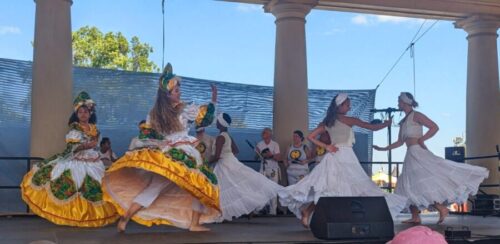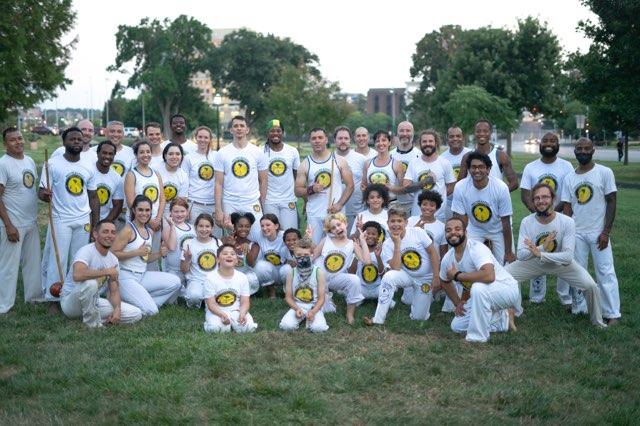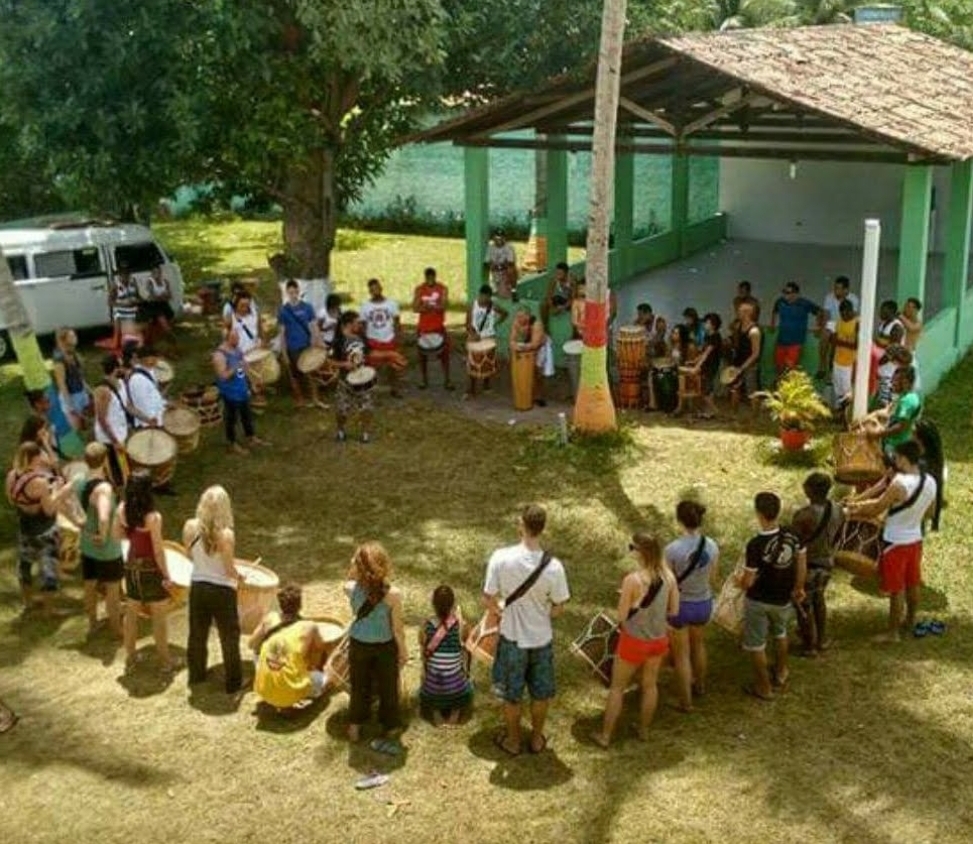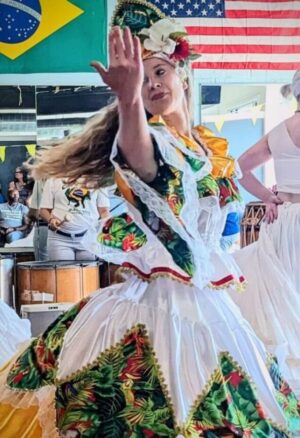Mon. - Thurs 4:30 - 9:30PM * Sat 11:30AM - 5PM (6430 Troost Ave, Kansas City, MO 64131)


About Us
Grupo Axé Capoeira Kansas City
Axé Capoeira Kansas City opened its metaphorical doors in 1998 and holds the distinction of being the first chapter of Grupo Axé Capoeira in the United States. The first Capoeira classes were hosted outdoors on the historic steps of the Nelson-Atkins Museum of Art. Now after all these years, Axé Capoeira Kansas City has expanded to become the best Capoeira school in Kansas City. Not only teaching the beautiful Martial Art of Capoeira, Grupo Axé Capoeira Kansas City immerses their students in the": Language, music, traditions and culture that Capoeira has to offer. You can find us sharing Capoeira, along with live music and dance from Brasil, when we hit the stages of: Ethnic festivals, First Fridays, holiday events, school cultural celebrations and private parties. Our classes include something for students of all ages, sizes, and skill levels. Children's classes (ages 7-12) are after school. Children (ages 3-7) come to our Saturday classes. Youth and Adult beginners (13 and older), will sign up for our Introduction to Capoeira program; students are introduced to Capoeira at a steady but challenging pace. Your legs will hurt. You’ll think you look foolish. The amazing rewards begin to happen when one can stick to it and decide that one does have what it takes to get past the pain and become a part of something special. Axé!
Head Instructor
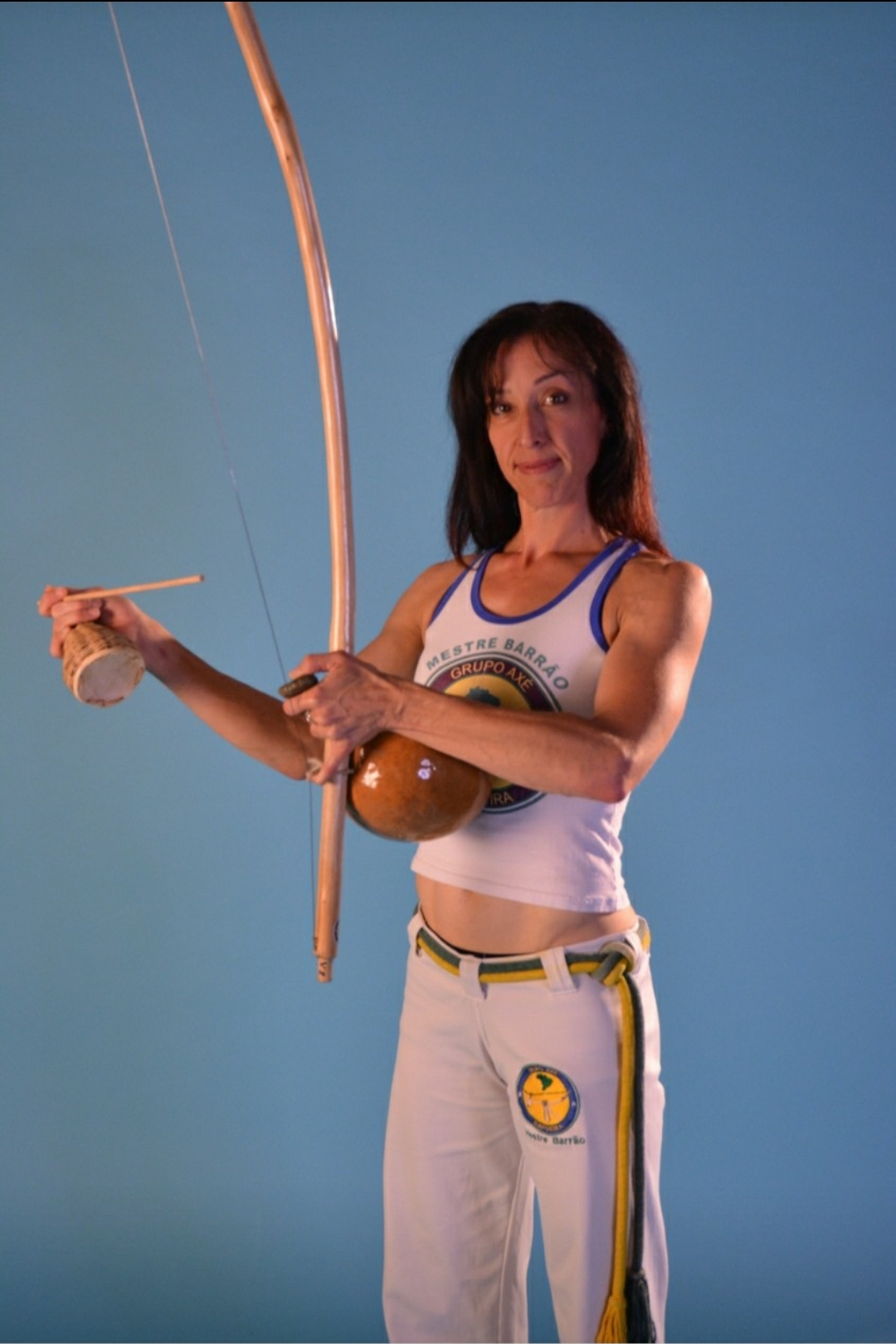

(Professora Arara)

Pricing Plans
$103.30
Introduction to Capoeira class - x2/week
Youth and Adult Capoeira class for new students - Mondays @6pm and Thursdays @ 6:30pm - Intro. to Capoeira (Youth and Adult)
$144.49
Adult's Class fee - one time payment
This payment includes: adult Capoeira classes, dance classes and weekly Roda
$123.89
Adult's Class fee - Recurring payment x3/week
This payment includes: adult capoeira classes, dance classes and weekly Roda. A discount is awarded for recurring payments. Thank you!
$118.74
Children's Class fee - one time payment
For children between the ages of 7-12 who train in the weekday Capoeira classes, dance classes and who attend our Saturday Rodas.
$98.15
Children's Class fee - Recurring payment
For children between the ages of 7-12 who train in the weekday Capoeira classes, dance classes and who attend our Saturday Rodas. A discount is awarded for recurring payments. Thank you!
$113.59
Children's Saturday Class fee - one time payment
For children ages 5-7 who train on Saturdays and attend the weekly Saturday Rodas.
$93.00
Children's Saturday Class fee - Recurring payment
For children ages 5-7 who train on Saturdays and attend the weekly Saturday Rodas. A discount is awarded for recurring payments. Thank you
$108.45
Dance Class fee - one time payment
African Brazilian Dance: Tuesdays and Thursdays with opportunities to perform
$87.85
Dance Class fee - recurring payment
African Brazilian Dance: Tuesdays and Thursdays with opportunities to perform. A discount has been awarded for recurring payments. Thank you






